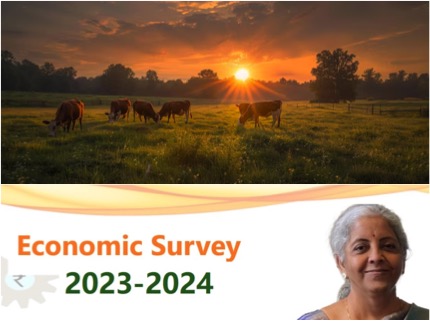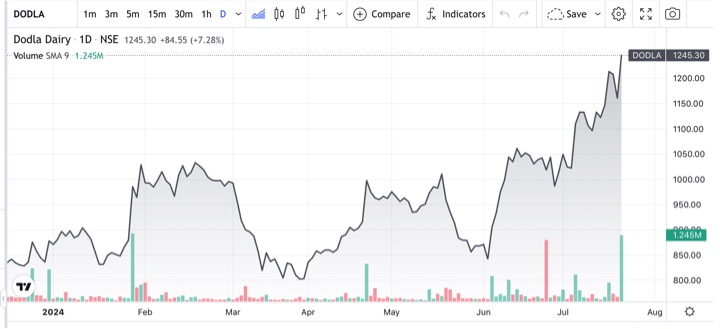Dairy farming will play a key role in accelerating the growth of agriculture sector and in providing nutritious dairy products to masses. The state government under its Amul – Palavelluva is providing an incentive of Rs 5 to 7 per liter of milk to farmers associated with milk cooperative societies in some districts. The farmers of twin districts who are running mini-dairies to supplement their farm income, which is subject to vagaries of nature. Livestock plays a significant role in the rural economy. It is one of the remunerative alternatives to agriculture system which provides regular income and employment to households, especially small and marginal farmers. This regular source of income acts as a cushion against the inclement weather-linked risks to seasonal income from crop sector. Till now, the growth in the dairy sector has been demand-based and self-driven.
Despite low public investment (low budgetary allocations) in the livestock sector, its growth rate is very consistent and has remained above 5 per cent in the past five decades. The dairy sector has been in crisis since a decade due to a steep hike in the prices of various inputs, especially feed and fodder. With increase in private diaries, farmers are not showing interest as they did not get incentives from government. Moreover, the increase in transportation and fuel costs, put additional burden on many dairy farms.
Nearly 20 bulk chilling units have been closed in the two districts. Considering the importance of dairy farming in accelerating the growth of agriculture sector and in providing nutritious dairy products to masses, there is an urgent need for a policy intervention for incentivising dairy farmers by way of increasing milk procurement rates or extending a special incentive on milk, as is being done in some states. The increase in the rate of milk is not commensurate with the increase in the prices of inputs. The main component of cost of milk production is the feed cost accounting for almost 75 per cent, which includes green fodder, dry fodder, concentrates and supplements.
During the past year, the prices of all feed items have skyrocketed, including transportation and fuel costs. The government should sanction loans to dairy farmers and allocate at least 20 units at each mandal. 70 per cent milk samples collected across the country by food safety authority did not conform to standards. The results of a first-of-its-kind survey on milk by the Food Safety and Standards Authority of India (FSSAI) reveal something startling—most Indians are consuming detergents and other contaminants through milk. The National Survey on Milk Adulteration, a snapshot survey, was conducted to check the contaminants in milk, especially liquid milk, throughout the country. The study found that due to lack of hygiene and sanitation in milk handling and packaging, detergents (used during cleaning operations) are not washed properly and find their way into the milk. Other contaminants like urea, starch, glucose, formalin along with detergent are used as adulterants. These adulterants are used to increase the thickness and viscosity of milk as well as to preserve it for a longer period. The study notes that the consumption of milk with detergents is hazardous to health. About eight per cent samples were found to have detergents. Farmers feel that the government should take a serious view of adulteration in milk and curd and other associated products and punish companies indulging in health hazardous operations.



























